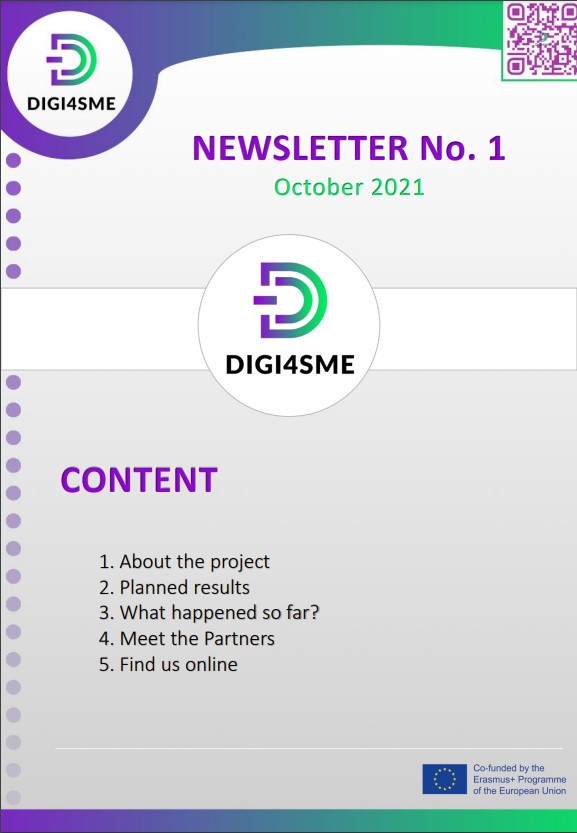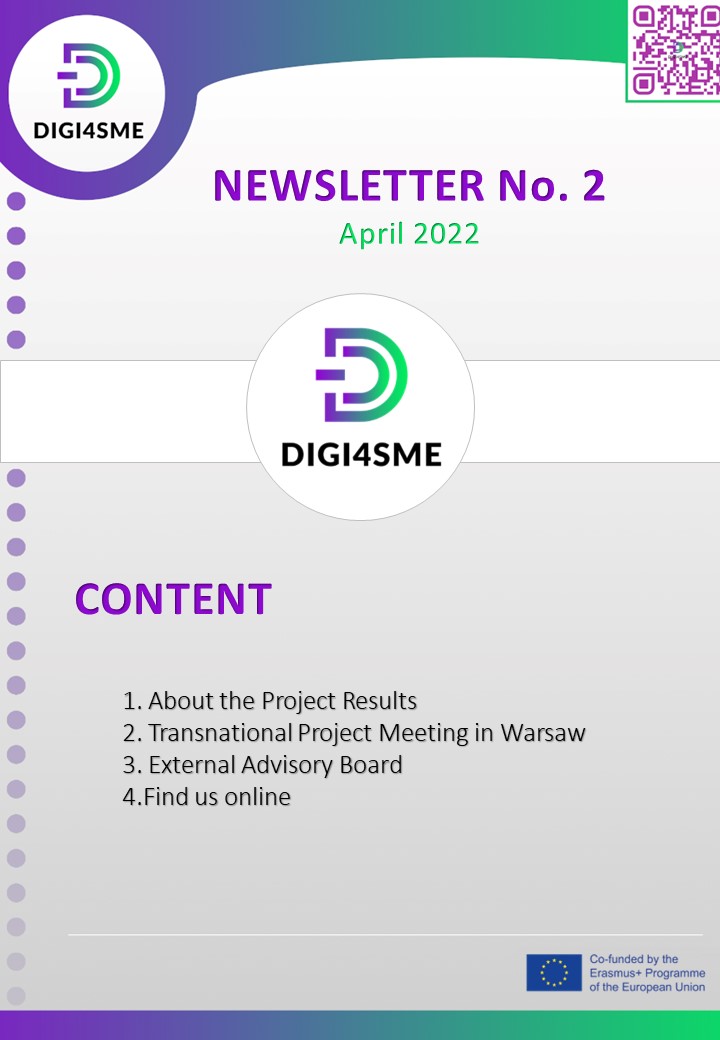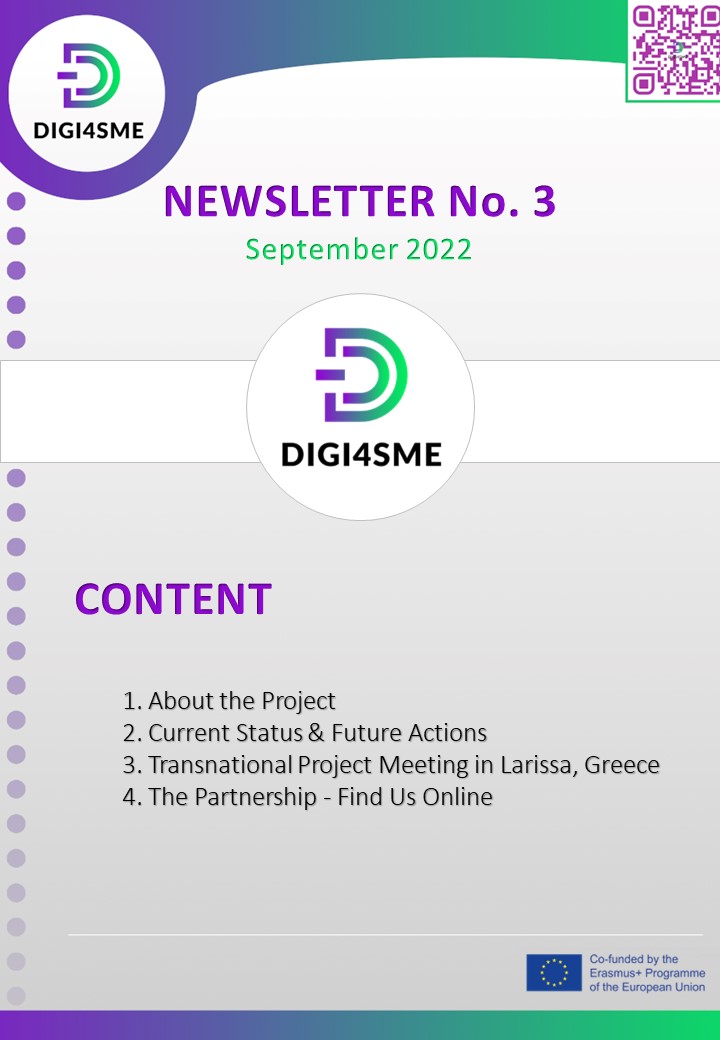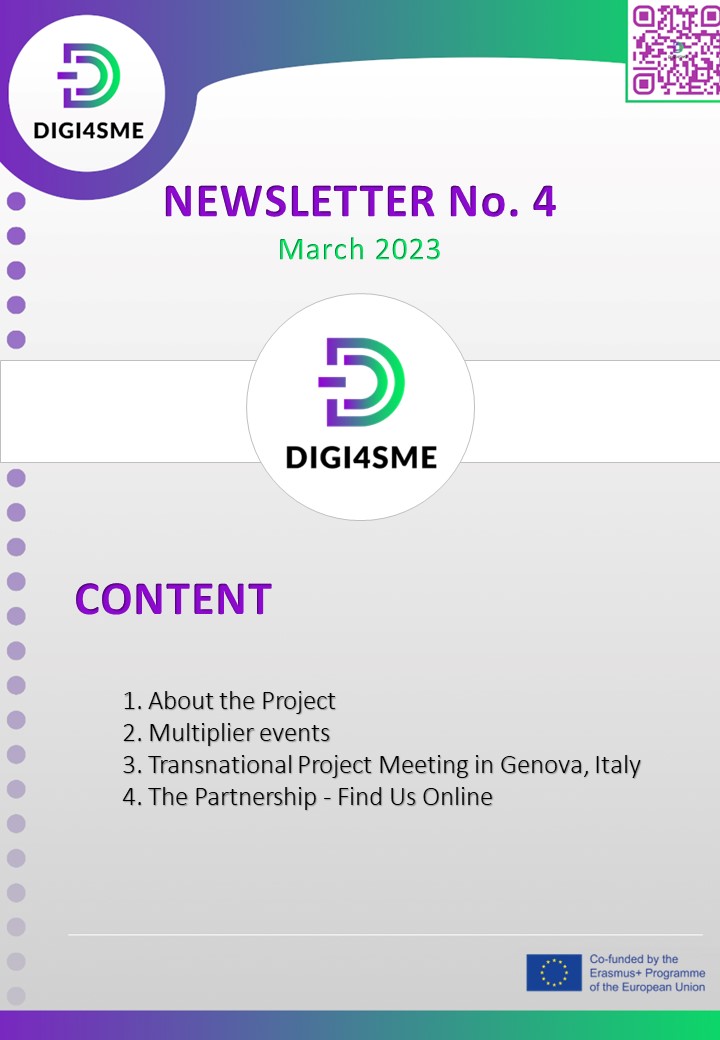Digital Competences of VET Trainers for SME
“Digi4SME – Digital Competences of VET Trainers for SME” is a 24-month Erasmus+ funded project that aims to extend the digital competences of VET trainers providing training to SMEs, by applying and promoting the DigCompEdu framework (EC, 2017). Many VET trainers are not ready to provide education online as they have either no or basic digital skills and the project aims to change this situation upskilling them, so that they can deliver high quality inclusive and innovative digital education benefitting SMEs.
The coordinator of the project is Diciannove Società Cooperativa (Genoa, Italy), and partner organisations are: STOWARZYSZENIE CENTRUM WSPIERANIA EDUKACJI I PRZEDSIEBIORCZOSCI (Poland), LABC S.R.L. (Italy), KAINOTOMIA & SIA EE (Greece), SC Ludor Engineering SRL (Romania), INSTALOFI LEVANTE SL (Spain) and KRAJOWA IZBA GOSPODARCZA (Poland).









